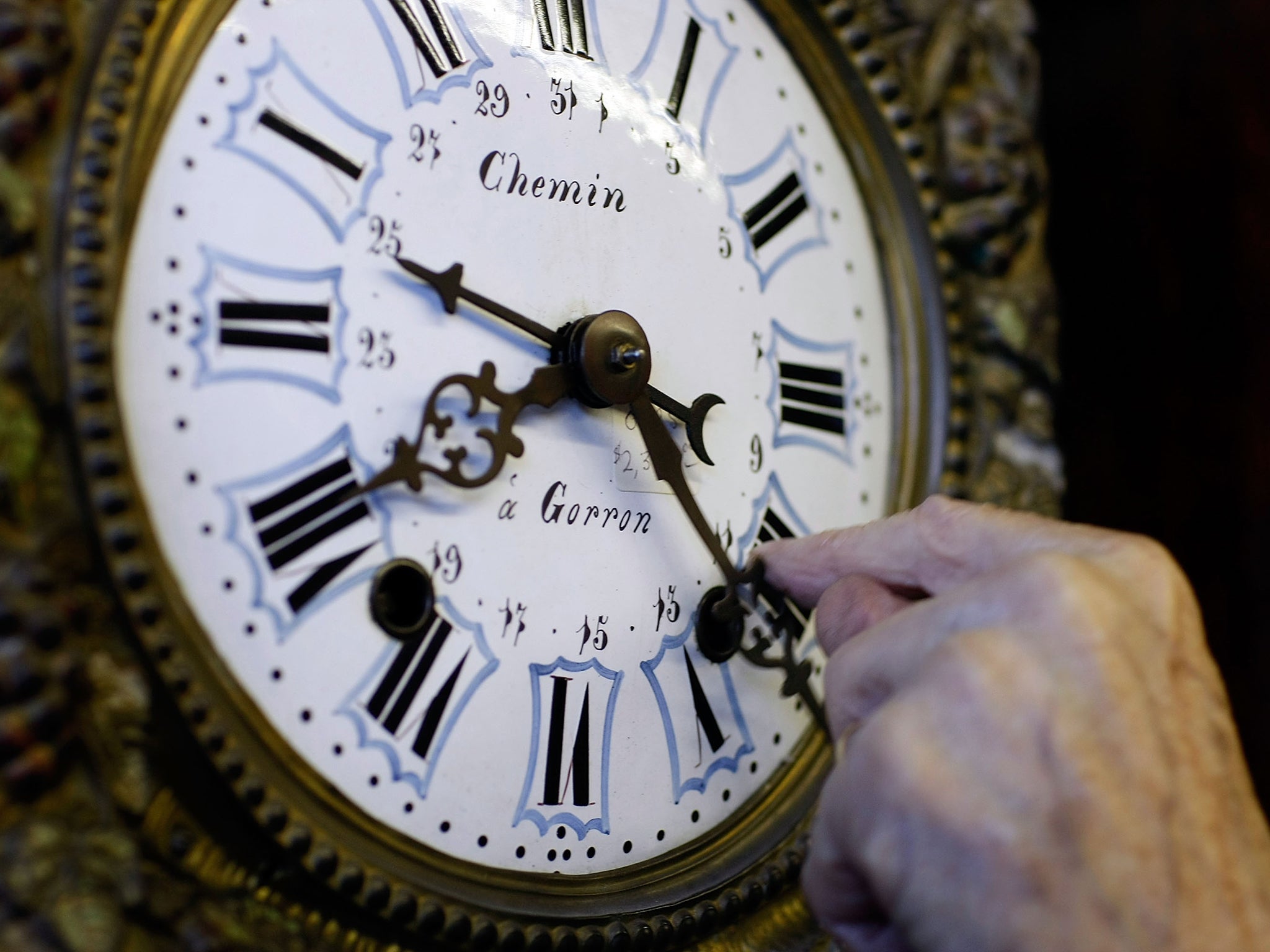What time do the clocks go forward? Why is this done?
Stay informed for the upcoming changes to your schedule

Your support helps us to tell the story
From reproductive rights to climate change to Big Tech, The Independent is on the ground when the story is developing. Whether it's investigating the financials of Elon Musk's pro-Trump PAC or producing our latest documentary, 'The A Word', which shines a light on the American women fighting for reproductive rights, we know how important it is to parse out the facts from the messaging.
At such a critical moment in US history, we need reporters on the ground. Your donation allows us to keep sending journalists to speak to both sides of the story.
The Independent is trusted by Americans across the entire political spectrum. And unlike many other quality news outlets, we choose not to lock Americans out of our reporting and analysis with paywalls. We believe quality journalism should be available to everyone, paid for by those who can afford it.
Your support makes all the difference.The two annual clock changes in the UK have been in place for a century but continue to prompt confusion and disgruntlement in seemingly equal measure each year.
When do the clocks change?
This year the change will happen on Sunday, March 27, at 1am.
Are they going backwards or forwards?
Forwards, to 2am, meaning darker early mornings but extra sunlight in the evenings.
Why is this done?
In the UK, daylight savings time was officially introduced following the The Summer Time Act 1916. The law followed a campaign by builder William Willett - the grandfather of Coldplay singer Chris Martin - who was a lifelong advocate for Daylight Savings Time (DST).
He believed it would save on energy costs and enable people to have more recreation time outdoors.
“Everyone appreciates the long light evenings,” Mr Willet wrote in 1907.
“Everyone laments their shrinkage as the days grow shorter, and nearly everyone has given utterance to a regret that the clear bright light of early mornings, during spring and summer months, is so seldom seen or used.”
However, the need for increased labour during the First World War is thought to be the main reason the government entered DST into legislation.
So why do people dislike it?
A few reasons, but primarily because we lose an hour of sleep.
There has been research indicating that heart attacks increase around the period of the spring time change.
However, supporters of daylight savings time point out heart attacks are generally more prevalent in winter and spring.
An increased number of car crashes have also been linked to the lost sleep DST brings.
Researchers in the US found car accident deaths increased from an average rate on Mondays of 78.2 to 83.5 on the Monday after the clocks went forwards.
British researchers have found similar results.
Despite this, advocates say the following eight months of increased daylight could actually improve traffic safety as it is easier to drive in daylight. One American study has even suggested that having summer DST all year could save 366 lives annually in the country.
Other health benefits to longer days have been also been found.
A 2014 report from the London School of Hygiene and Tropical Medicine indicated children’s health benefited from longer evenings as they have more time to play outdoors.
The daily activity levels of children were found to be 15-20 per cent higher on days when the sun set after 9pm.
When the sun set earlier, activity levels of children also fell.
Join our commenting forum
Join thought-provoking conversations, follow other Independent readers and see their replies
Comments